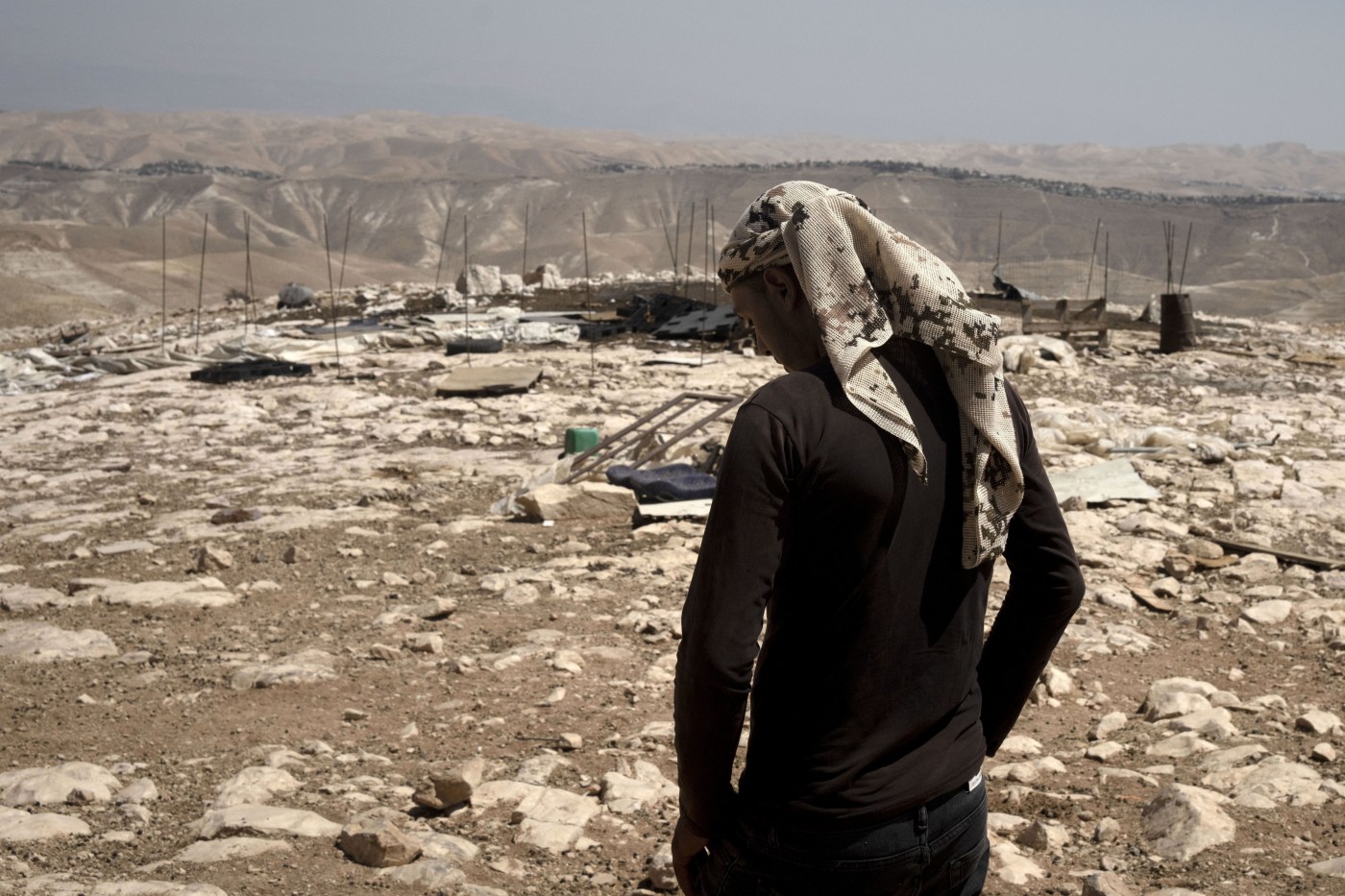
Serge Schmemann: Violence by West Bank settlers cannot be ignored
After the well over 1,000 Israelis killed on Oct. 7, and the thousands more Palestinians in the Gaza Strip killed in the war against Hamas, it may appear unseemly to focus on the relatively small and sadly familiar clashes between settlers and Palestinians in the West Bank. But it would be a mistake to overlook the danger of the escalation in settler violence over the past month.
That appears to be the calculation of the militant settlers and nationalist extremists in Prime Minister Benjamin Netanyahu’s government, ardent champions of expanding the Jewish presence in occupied territories. By all accounts, the number of Palestinians displaced or killed in clashes with the Israeli military have risen sharply since Oct. 7. Right-wing extremists have cited the Hamas attack as justification, but they also seem keenly aware that the diversion of global and Israeli attention away from the West Bank offers cover for more audacious land grabs.
The immediate danger is that the West Bank will also explode in large-scale violence, which could prove far bloodier and more destructive than previous uprisings. Since Oct. 7, the Israeli military has tightened travel restrictions around the West Bank and has increased the number of raids against suspected militant hideouts. The Palestinians there whom I spoke to by telephone said people were aware of how terrible the consequences of an uprising would be.
But the mood in the West Bank, they said, is angry, and any incident could spark a wave of fury in the streets. Last Thursday, at least 10 Palestinians were reported killed in an Israeli raid in a refugee camp in Jenin, a frequent target.
The Biden administration has made clear it is aware of the tensions. “I continue to be alarmed about extremist settler attacks on Palestinians in the West Bank; pouring gasoline on fire is what it’s like,” President Joe Biden recently said. “It has to stop now.” The administration also took the unusual step of seeking, and getting, assurances from Israel that none of the thousands of American assault weapons sought by Israel would go to civilians in the West Bank settlements.
Netanyahu, however, has shown little interest in restraining his allies. Although he formed a special war Cabinet with opposition leaders to manage the conduct of the campaign against Hamas, his original coalition government remains intact, including religious-nationalist extremists Bezalel Smotrich, the finance minister, and Itamar Ben-Gvir, the minister of national security, both unequivocal champions of settling Jews in the West Bank, which they refer to as the biblical Judea and Samaria. Before the Hamas raid, the far-right government was pushing for “judicial reform” which drew broad and sustained opposition in Israel as an attempt to free the government of judicial restraints on its actions in occupied territory.
Despite the national preoccupation with Gaza over the past month — or perhaps because of it — the zealots have kept at it. Smotrich has called for widening Palestinian no-go areas around Israeli settlements, including a ban on Palestinians harvesting olives near the settlements. Ben-Gvir has dismissed concerns raised by Israeli intelligence agencies about settler violence, referring to it as nothing more than “graffiti” by Israeli youths on Palestinian property and reportedly asking why there was so much attention given to it.
It’s hardly graffiti. According to the U.N. Office for the Coordination of Humanitarian Affairs, 150 Palestinians, including 44 children, have been killed by Israeli forces, and eight others by Israeli settlers, since Oct. 7, and at least 111 Palestinian households comprising 905 people were displaced. In that same time, three Israeli soldiers were killed in attacks by Palestinians. That represents an increase from an already high average of three incidents against Palestinians a day so far this year to an average of seven a day.
The figures don’t give the full story of the ways in which Palestinians are terrorized: the uprooting of hundreds of their olive trees, the vandalizing of property, the beatings and shootings, and the roads and outposts the settlers, and sometimes the army, have built to connect settlements and outposts. In an incident reported by The New York Times recently, a Palestinian vendor and his family were picking olives when four armed Jewish settlers showed up and began yelling. The Palestinians fled, but the vendor, Bilal Mohammad Saleh, turned back to grab his phone. Saleh was shot dead, the seventh Palestinian to be killed by settlers since Oct. 7.
Palestinians have also found threatening leaflets under their windshield wipers, with messages like: “A great catastrophe will descend upon your heads soon. We will destroy every enemy and expel you forcefully from our Holy Land that God has written for us. Wherever you are, carry your loads immediately and leave to where you came from. We are coming for you.”
The settlements are not a new project; they began to crop up almost immediately after Israel conquered much of the West Bank in the Six Day War of 1967. Since then, despite the fact that most of the world regards the settlements as illegal, they have steadily expanded and swelled. Under the Oslo Accords of 1993, which gave Palestinians limited self-rule, settlements were set aside as one of the issues to be resolved in future negotiations. But that issue has never been resolved, and they continued to expand. Under Israeli law, Jews living in the settlements are treated as Israeli citizens, while their stateless Palestinian neighbors live under military occupation.
There are more Israeli settlements in the West Bank than Israel has officially recognized, and over 100 illegal settler outposts. According to population statistics maintained by the settler site WestBankJewishPopulationStats.com, their population went over 500,000 in January, and is projected to clear 1 million by 2047. Baruch Gordon, one of the authors of the report, said the population growth was testimony to the permanence of the Jewish presence in the West Bank. Opponents of the settlements, he said, “say eventually they’ll go away with a globally negotiated peace deal.” However, “the facts on the ground are saying that we crossed the threshold of half a million, and that is a major mark and we’re here to stay.”
The Biden administration and the American people have shown extraordinary support for Israel, both moral and material, and much more is on the way. That is good and proper: Israel is a close ally and faces formidable hostility in its neighborhood and the world. It shows no lack of respect for the Jewish state, and its struggle, to condemn the extremist minority whose goals and methods only undermine any chance for eventual peace and the real security Israelis so ardently seek.
Biden and his lieutenants must be unequivocal in their demand that Israel take serious measures to restrain the zealots, including those in government.
Related Articles
Jesse Wegman: Teach the importance — and the principles — of free speech
Trudy Rubin: In the war between Ukraine and Russia, which side is the GOP on?
Pamela Paul: It’s not kids with the cellphone problem. It’s parents.
F.D. Flam: Useless decongestants are just the tip of the iceberg
Thomas Friedman: I have never been to this Israel before


